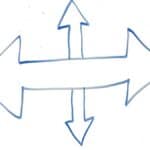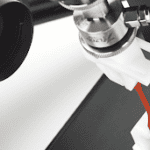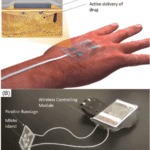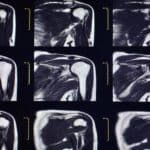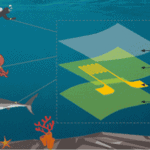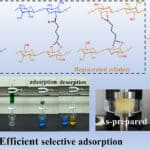A jugular venous valve functions to prevent retrograde blood flow. If it malfunctions or is incompetent, symptoms such as amnesia or stroke may occur. Moreover, there are no long-term remedy for jugular venous valve incompetence – surgery to replace a failed valve often uses a replacement with warped mechanical properties which in turn affects the valve performance. Dr. Hsiao-Ying Shadow Huang and her team at North Carolina State University wants to bridge the knowledge gap of mechanical properties of the venous valve tissues so as to address better choice of bioprosthetic venous valve replacements and venous valve incompetent treatment.
Her first approach is performing multi loading biaxial mechanical tests. Applying a stress in more than one direction better represents the physiological loading of the venous valve tissue, and various force loading ratios allows further characterization of the tissue’s fiber reorientation in extra-cellular matrix. Together with light microscopy imaging and scanning electron microscopy, this paper captures several firsts: images of the venous valve’s isolated elastin microstructure; explanation of the venous valve tissue’s anisotropic behavior; and characterization of crimp effects on venous valve mechanical properties.
The image above shows circumferential and radial stress-strain curves taken with the CellScale BioTester under the 3 force loading ratios. The paper also contains several high-contrast images of the bovine jugular venous valve tissue and its elastin microstructure.
Read the full journal article here: https://doi.org/10.3390/bioengineering6020045
Read about her research here: https://huang.wordpress.ncsu.edu/
Dr Huang is the recipient of the Presidential Early Career Award for Scientists and Engineers (PECASE) from the National Science Foundation. Read about the award here: http://bit.ly/2Jlpftm
To read about an onsite applications of valve tissue research, click here.


